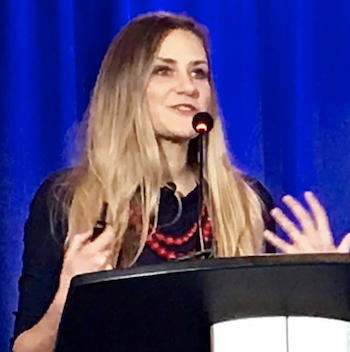
Suicide Safe Care
Implementing the New National Guidelines with Practical Resources
Enroll in Course
Implementing the New National Guidelines with Practical Resources
Training includes an 2 hour online on-demand course including independent work for primary care and other service providers. The course covers the new national guidelines for work across settings with patients at risk for suicide to support the implementation of Zero Suicide, as well as free evidence-based resources to share and support your work with suicidal patients.
Training Schedule & Course Description
You will be directed to a course website. You will have one month to complete the course once initiated, including course independent work. The course includes practical strategies to be applied independently. After completing the online course content, and once you have practiced these strategies independently, you are eligible to complete the final piece of the course. The documentation of your independent participation will make you eligible for your course certificate.
Who Should Participate?
Healthcare providers in outpatient and community health supporting suicidal patients, including Social Workers, Marriage & Family Therapists, Mental Health Counselors; Registered Nurses; Primary Care physicians, Psychologists, Psychiatrists; Licensed Nurse Practitioners; Certified Nursing Assistants; Physician Assistants, Medical Assistants, Licensed Practical Nurses, Peer Support Specialists and other relevant health/behavioral health care staff.
Objectives
At the end of this educational series, participants will be able to:
- Explain to patients and loved ones a basic Stress Model explaining suicidal thoughts and behavior
- Name the main three components of Recommended Standard of Care for suicidal individuals and understand their relevance to the Zero Suicide approach.
- Describe how existing Depression Screening tools can be used to identify those at greatest risk for suicide.
- Explain Language Recommendations (from those with lived experience) concerning suicide.
- Convey the purpose of Safety Planning and where to find free Safety Planning tools.
- Understand the power of addressing access to Lethal Means for suicide and providing Caring Contacts in preventing suicide
Completion Requirements
Participants are asked to complete the online course and associated independent practice exercise, as well as complete an evaluation with attendance attestation. The course is intended to take several weeks to complete because of the practice elements. We make the final exam and certificate available one month after initiation of the course to allow for practice in daily life.
Please use Google Chrome browser or Mozilla Firefox (Internet Explorer creates real problems). If you have trouble with progressing: install Google Chrome, restart your computer and your browser and log back in. If this doesn't work, try again the next day. This resolves 99.9% of challenges. See FAQ below or here for other common problems.
Continuing Medical Education Credits
Update Quarter 1, 2023: Currently pursuing CME credit options. Free certificate available.
This activity has been planned and implemented in accordance with the accreditation requirements and policies of the Wisconsin Medical Society through the joint providership of MetaStar, Inc. and Ursula Whiteside, LLC. MetaStar, Inc. is accredited by the Wisconsin Medical Society to provide continuing medical education for physicians.
MetaStar, Inc. designates this activity for a maximum of 2.00 AMA PRA Category 1 CreditsTM. Physicians should claim only the credit commensurate with the extent of their participation in the activity.
As of January 1, 2021 this online training will be available for CME credit for one year. The course is available indefinitely for non-CME credit.
Your Data
- your data will be used to inform course improvements.
- your de-identified data may be used for research purposes.
Course Curriculum
-
StartWhat's Going on In Your Area?*
-
Start10 Million American Adults Seriously Consider Suicide Each Year*
-
StartSurvey: Personal Experiences with Suicide
-
StartResults: Personal Experiences with Suicide*
-
StartWhy Do People Become Suicidal?*
-
StartThe Stress Model: Overview*
-
StartThe Stress Model: Summary*
-
StartCourse Objective: Use the Stress Model to explain suicidal thoughts and behavior to those you work with
-
StartWelcome to Zero Suicide and Recommended Standard of Care
-
StartIntroduction to Zero Suicide*
-
StartZero Suicide
-
StartRecommended Standard Care Guidelines*
-
StartHealth Affairs Article
-
StartDownloadable Support Tools
-
StartCourse Objective: Name the main three components of Recommended Standard of Care for suicidal individuals
Your Instructor

Dr. Ursula Whiteside is a licensed clinical psychologist, CEO of NowMattersNow.org and Clinical Faculty at the University of Washington. As a researcher, she has been awarded grants from the National Institute of Mental Health (NIMH) and the American Foundation for Suicide Prevention. NowMattersNow.org is a website she developed with colleagues that includes skills for managing suicidal thoughts based on Dialectical Behavior Therapy (DBT) and paired with Lived Experience stories.
Clinically, she began her training with Dr. Marsha Linehan in 1999 and later served as a DBT-adherent research therapist on a NIMH-funded clinical trial led by Dr. Linehan. Dr. Whiteside is a group and individual certified DBT clinician. Now, she treats high-risk suicidal clients in her small private practice in Seattle using DBT and caring contacts.
Dr. Whiteside is national faculty for the Zero Suicide initiative, a practical approach to suicide prevention in health care and behavioral healthcare systems. This program was recently described by NPR on a segment titled “What Happens If You Try to Prevent Every Single Suicide?” Dr. Whiteside serves on the faculty of the National Action Alliance Zero Suicide Academy. She is also a founding board member of United Suicide Survivors International.
As a person with Lived Experience, she strives to decrease the gap between "us and them" and to ensure that the voices of those who have been there are included in all relevant conversations: nothing about us without us.
